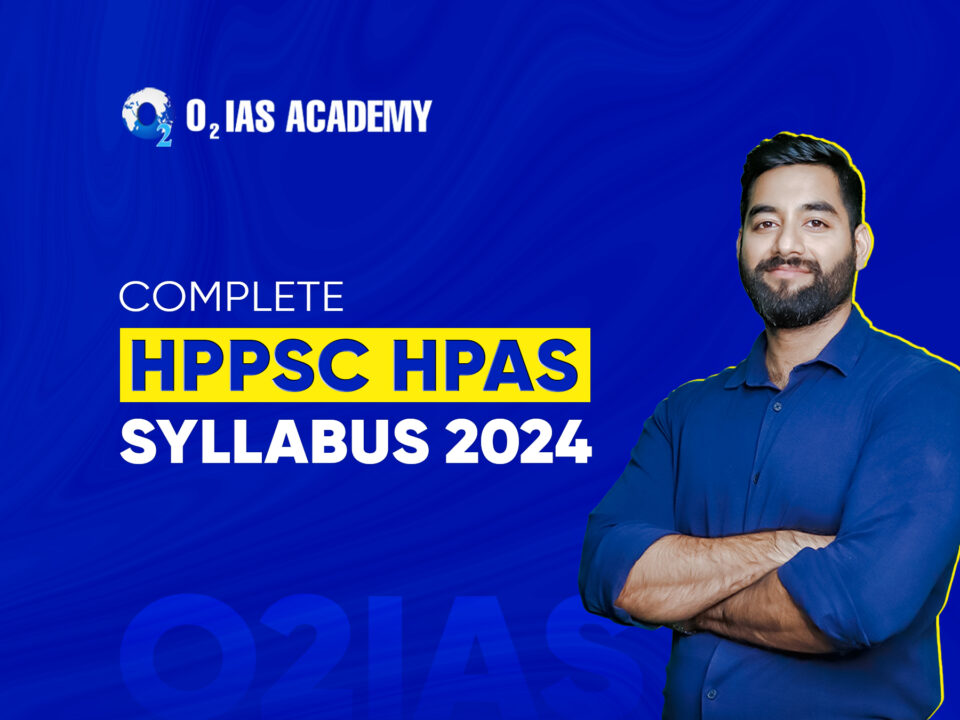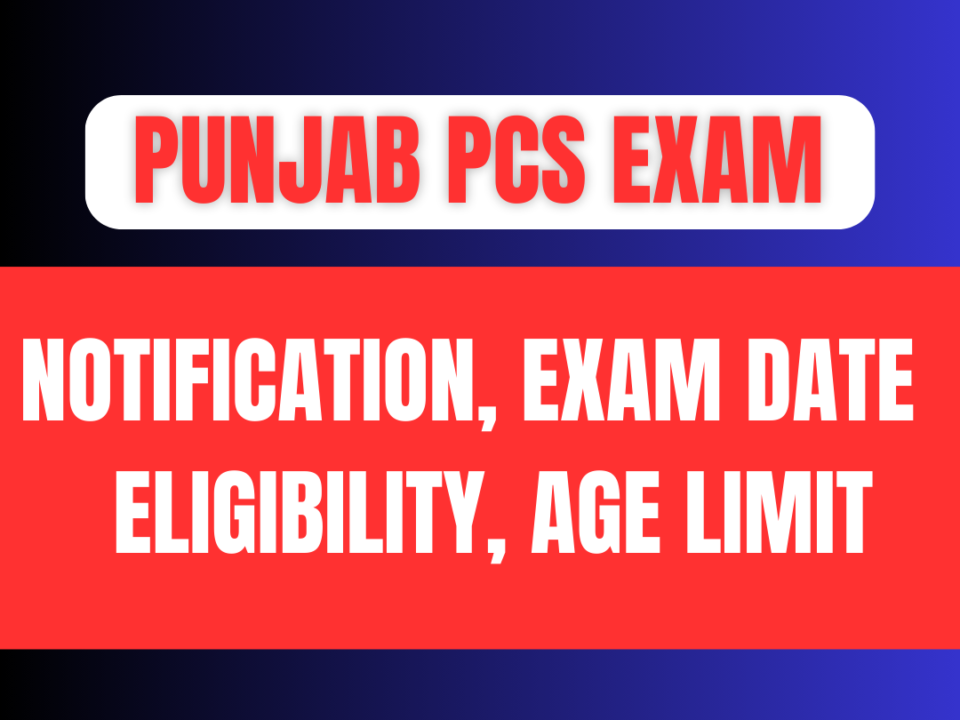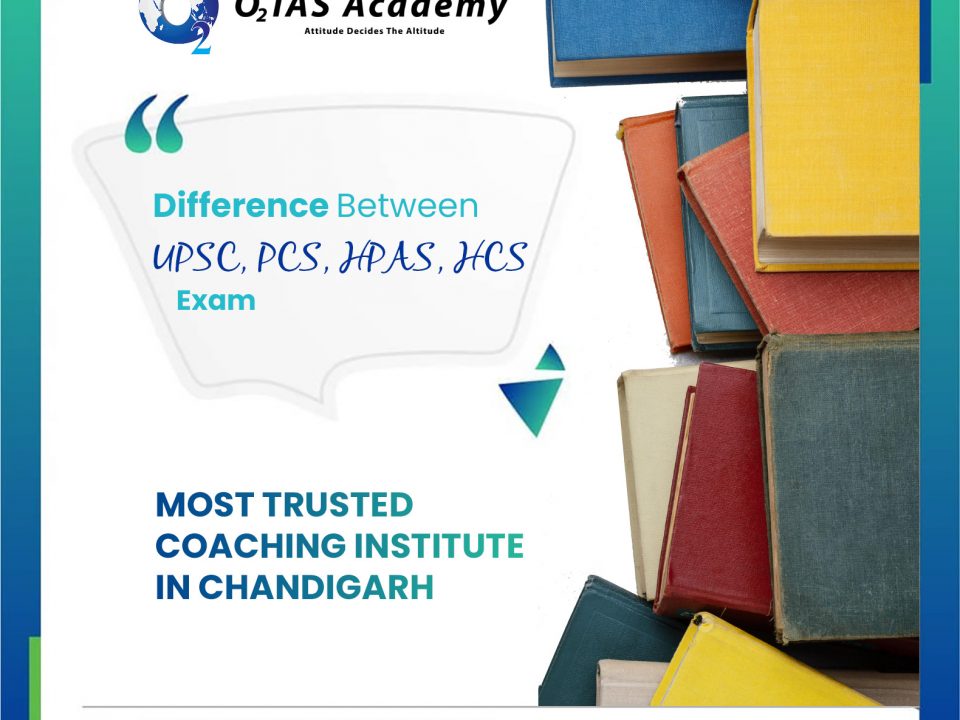How to set effective Time Table for IAS Preparation?
Every year lakhs of aspirants appear for prestigious IAS | PCS | HAS |HCS exams. However, very few aspirants are able to clear various stages of the examination process. And the reason is not the lack of knowledge. The culprit is erroneous Civil Service exam preparation strategy, poor time management skills and inability to adhere to a good time table. IAS Aspirants tend to believe that there exists some ideal magic in IAS toppers timetable which the successful candidates followed to clear the exam. We, at O2 IAS Academy, believe that religiously and regularly following daily practicable targets, mock test and repeated revision to boost your IAS preparation is all it takes to clear Civil Services Examination. For aspirants studying Coaching institutes in Chandigarh and other parts of India who are struggling to make their own study plan, we are listing out a guideline for an ideal routine which can be customized as per personal requirements.
What are the various aspects one should take into consideration while drafting a custom time table for Preparation of Civil Services Examination (CSE)?
Some tips to keep in mind while drafting a time table
- It is important to have a long-term strategy for the CSE before you start planning a daily routine. Divide long-term strategy into doable monthly, weekly and finally daily targets. This will aid in keeping track of progress.
- It is always advisable to plan in advance for your monthly, weekly and daily targets. And later review your progress every 30 days.
When setting a daily study plan always account for breaks and its timings, time for pursuing hobbies, family time and extracurricular activities. - Do not try to set study sessions which are too long such as 4 hours or 5 hours. It is best to divide your daily schedule into 3-4 study sessions of 2-3 hours each.
- After completing one study session take a short break. According to scientific studies, productivity and concentration start decreasing beyond 45 minutes. Thus after every 45- 50 minutes study session take a break of 10-15 minutes
- Following e a healthy diet and maintaining a good sleep regimen is a must for physical and mental health.
- Finish daily morning chores things like taking bath, brushing teeth etc within 45 minutes.
- Multitasking is not to be done while studying. Do no study and use social media at the same time.
- Always make sure that there are no distractions while studying. For eg: Always keep the phone at silent mode, Log off from social media while studying.
- Do not pile up books and try to read them all in a week. Cover standard sources like NCERTs, newspaper, Current Affairs etc in a timely manner from a single source. It is not feasible to study a single subject for 10 hours a day (e.g. Laxmikanth Polity, Spectrum or Bipin Chandra for History. You should instead read a larger topic 2 hours a day for 5 days. This is will enable you to retain what you study for a longer period of time and complete thick book without feeling any undue pressure.
How Do I stick to my planned study routine during Civil services Preparation?
Important Point:
You have to be your own guard. Meaning: that if you are setting a monthly/weekly/daily target then you have to make sure that you execute it. Since no one else going to either award or punish you for achieving or slacking in following your time table. You have to religiously follow your strategy and time table and always remember the motivation behind why you are for this exam. So prepare holistically and consider this journey sacred.
What should be the General (annual) Plan for Civil Services Exam Preparation?
From July to November: this should be the time when you follow an integrated pre mains strategy. You have to study for GS-1 to GS-4, read the newspaper (The Hindu), anyone Magazine (optional), prepare for Essay. This is also the appropriate time to decide your optional subject for mains and start preparation for Optional subject of your choice. Read all standard books like NCERT, Laxmikant, Bipin Chandra and study material package of a renowned coaching class for General Studies Prelims and Mains as well during this time compile notes where indispensable. Occasionally, watch the parliamentary discussion and other debates on Rajya Sabha TV and Lok Sabha TV.
From December to March: now you should slowly start giving more time to pre-oriented preparation an along with that newspaper, and some mains prep will continue side by side.
You should keep aside and reserve April and May strictly only for revision purpose.
Since now CSAT has been made qualifying solve books for CSAT from November onwards if you are weak in CSAT otherwise 1-2 months is enough to qualify CSAT.
If you are weak in Language paper only and only then give a slow start to language paper preparation in writing and that will be intermittently not daily.
General time table guidelines:
6:00 AM-8 AM: Wake up, Rise & Shine Exercise, Meditate, do some Yoga or any light Physical activity eg a brisk walk. This will make you alert by increasing blood flow to the brain. Meditation & Yoga relax the mind, reduce stress thus helping you prepare for the tough schedule ahead.
Take Bath.
Have a nutritious Breakfast.
8:00 AM: By 8 be ready for study session by finishing your breakfast and reach the reading room in your house/hostel/library.
8:00 – 10:00 AM: Read “The Hindu” and analyse UPSC syllabus related current affairs and make notes.
10:30-11 AM: Revise previous day’s study topics, evaluate all the topics studied the day before. This will help in building continuity for topics.
11 AM: Take a small Tea break from the long The Hindu study session. a tea break will refresh your mind and body. Try to relax your mind. Avoid thinking about study topics during this time.
11:30 AM – 1:00 PM: Study topic according to your weekly plan. so the portions which you will read every day will be decided according to the weekly plan.
1:00 PM – 2:00 PM: Lunch. Keep your lunch light to avoid stomach troubles and lethargy.
2:00 – 3:00 PM: A short nap or relaxation time
3:30 – 5:00 PM: Continue with study session. I take a small break 10 min break after 45 mins. With your mind and focus already focused and warmed up after Study Session I, it will be easier to understand topics in this session.
5:00 PM: Evening tea + small talk. Try to relax your mind. Avoid thinking about study topics during this time. You can meet up with your study group during this time and do some personality and skill development activities like debates, group discussions etc. This will make you familiar with different viewpoints on various topics and lead to improvement in your interpersonal communication skills.
6:00 PM: Daily Writing practice
7:00 PM: Peer review of answers and their discussion.
8 PM: Dinner
9:00 – 11:00 PM: Optional paper
11:00 PM: Some networking, watching one episode of any TV series or any other miscellaneous activity.
Sundays: Either all Sundays can be kept as half days or any 2 days per month can be taken as full off day from study routine. You can catch up with social obligations or hobbies during this time such as watching movies, lunch with friends etc.
Conclusion
Time is one of the most important resources in the world. It holds even more important in the life of IAS aspirants, who are preparing for one of the toughest entrance examinations of the country. Time management related questions are the most recurring questions in IAS coaching institutes in Chandigarh and India. This pattern evidently exhibits the lack of understanding among the aspirants regarding construction of an effective time management strategy. We, at O2 IAS Academy, believe that time management is a continuous process and not just a schedule. It is very subjective and thus what works for one person may not work for another. Since different IAS candidates will have their own unique study patterns and associated goals. But this timetable can be easily modified to meet them as and where needed. If you can usually achieve 90% of the target then you are on the right path. Remember you cannot push yourself to study 15–16 hours for more than a month and if you try to then you will end up wearing yourself out and you will be run out of the game. Thus take it one day at a time. Try to enjoy your UPSC journey and you will soon have a taste of success.
We hope that these tips will help you. These were our views and opinions on this topic. What are your thoughts and inputs or queries on this topic? Comment below and share your views with us. We would be happy to assist you in your UPSC preparation battles and answer your queries.



